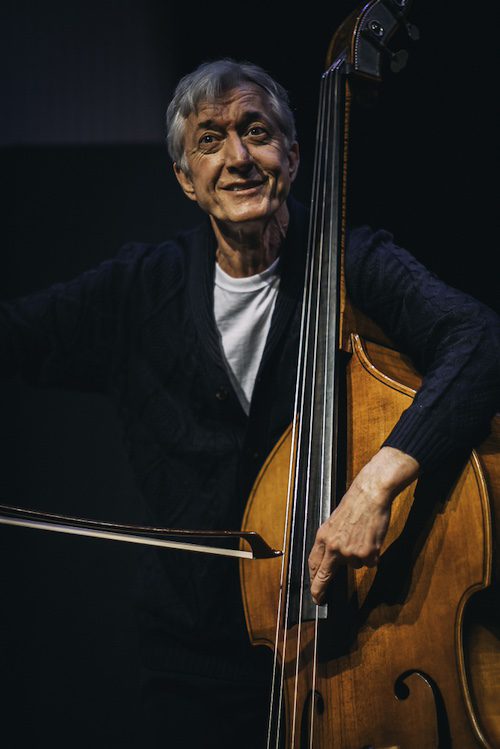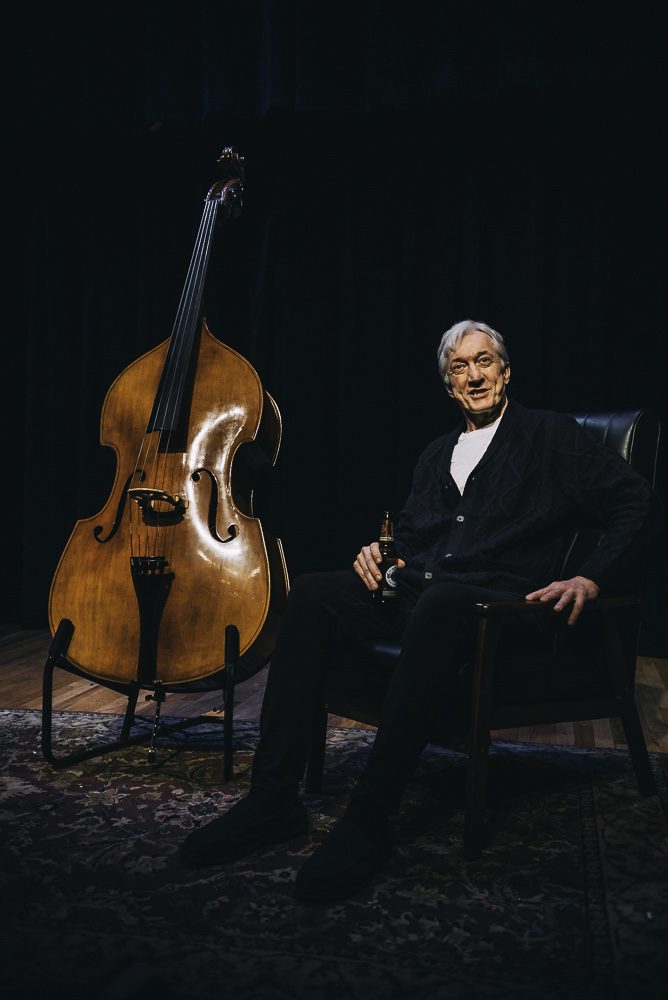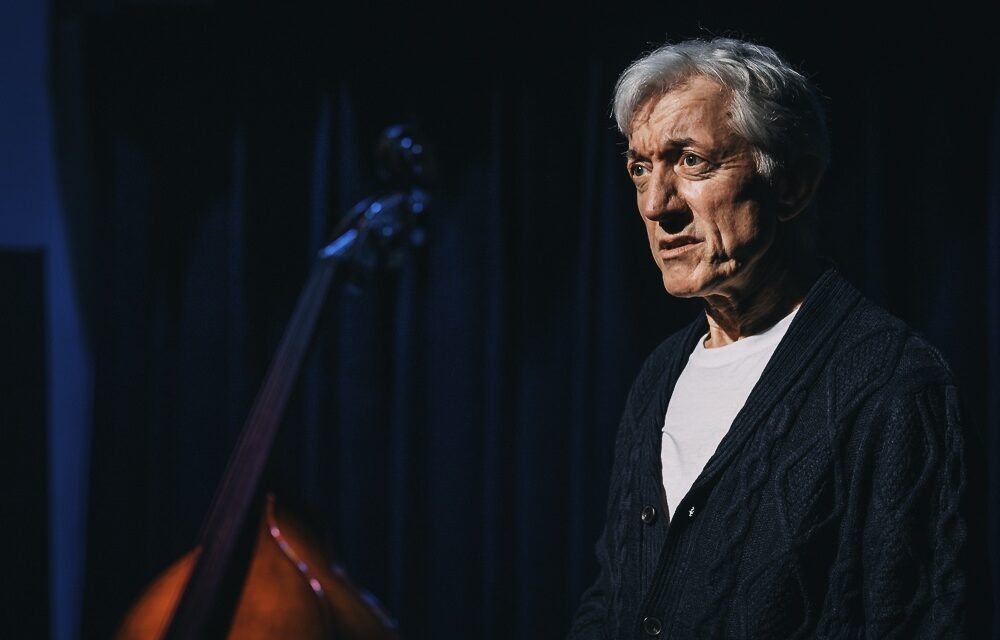Theater Review by Walter Murphy . . . .
An hour-long monologue about the most vital yet least appreciated instrument of an orchestra, the double bass, could easily have left an audience questioning their life choices and evening plans. Fortunately, with actor Sean Gormley masterfully telling the tale of a lonely double bass player—in the aptly named one-man show, The Double Bass, playing at The Cell through April 25 as part of the Origin 1st Irish Festival—the audience is treated to a talented actor holding court on a variety of topics.
Music with metaphysical appeal: “ . . . an orchestra is, and must remain, a hierarchically structured organization. Kind of a reflection of human society in general.”
The double bass, in all its glory, complete with demonstrations, its tone described as a “nasty sonic discharge.”
A critique of classical composers. “Mozart is very overrated.” And, “Germany and Austria had the better composers.”
Interspersed throughout these observations are the player’s regrets, desires, familial vengeance, and despair at his unrequited longing for love.

Amazingly, Gormley winningly presents the player as an optimist despite immediate evidence to the contrary. One has to respect the player’s vast musical knowledge and sympathize with his heartache. We’ve all been there.
Originally performed in Germany, the play was written in 1980 by Patrick Suskind. Gormley saw the play in 1990 when it was at the Andrews Lane Theater in Dublin. Brendan Gleeson, most recently famous for The Banshees of Inisherin, performed the play in English with a German accent. Gormley had wanted to perform the play since then. In addition to his superb performance, Gormley translated the play from the original German and then reviewed three English translations to produce the current version.
The level of detail about the double bass, orchestras, and composers could well prepare contestants for Jeopardy. Category: The Double Bass. For $1000. The answer: 41.2 hertz. The question: What is the sound frequency of the low E string? Also, did you know that the double bass originally had 3 strings . . . but in 1932, Luigi Cherubini insisted that the Conservatory and Opera of Paris adopt the current 4 string arrangement. Outrage among players ensued. And as an example of how the play swung between the informative to the petty: “Of course being outraged is a favorite pastime of the French.”
Some German references have been replaced with current Irish descriptions. For example, trains are described as Dublin’s light rail Lúas; the prime minister is identified as Ireland’s Taoiseach; the police as the Garda. Wise replacements that align naturally with Gormley’s lilting Irish brogue. Other adjustments to the script removed some German references. For example, in the original script it was mentioned that there were orchestras in concentration camps.


Gormley’s editing allows his charming manner to make for an appealing character. The player is described as a lonely man venting his frustration with his world and all things in it. Gormley’s portrayal does that but with self-knowledge and humor that tempers his angst. “I know my limitations and that’s what sets me apart from others, in a positive sense.” He is a character at peace but still, frankly, a little cranky.
Good use of The Cell’s small stage is made by director Labhaoise Magee, having the actor moving throughout the show, avoiding the feel of a lecture with a stationary monologist. The player irons, plays CDs, opens windows, plays the double bass, opens beers, gets dressed for a performance, and constantly shifts his attention across the audience. The space is sparse but intimate, which keeps the focus on the performer and the narrative.
The staging is minimal but the lighting (Chris Steckel) and sound design (Mason Pilevsky) are very effective. Lighting captures the shifting moods of the player, depending on his topic. Possibly to emphasize his loneliness and isolation, it’s noted that the player’s apartment is soundproof, so he can practice without causing a disturbance. To illustrate the point, the player “opens” a window and street noise is heard. When closed, the player’s voice regains command of the stage.
Initially, I had doubts about the entertainment value of a play about the double bass but instead found it to be a winning combination of musical facts and personal friction. Bravo!
The Double Bass. Through April 25 at The Cell (338 West 23rd Street, between Eighth and Ninth Avenues) is presented as part of the Origin 1st Irish Festival.
Photos: Rory Duffy


















